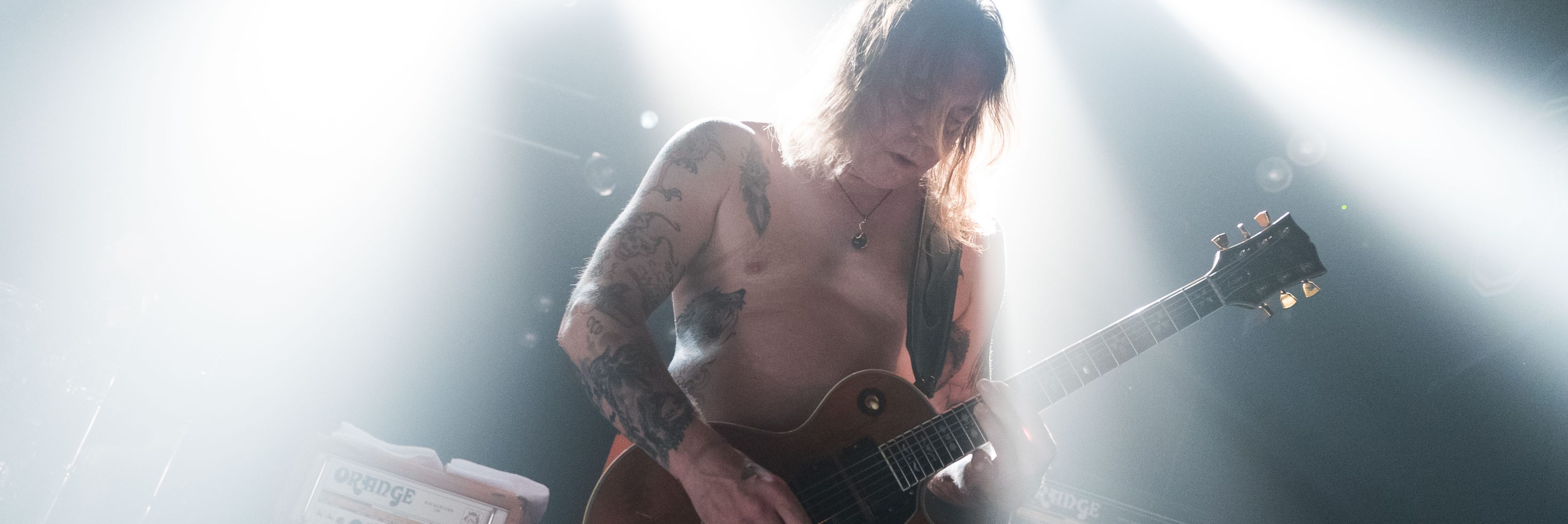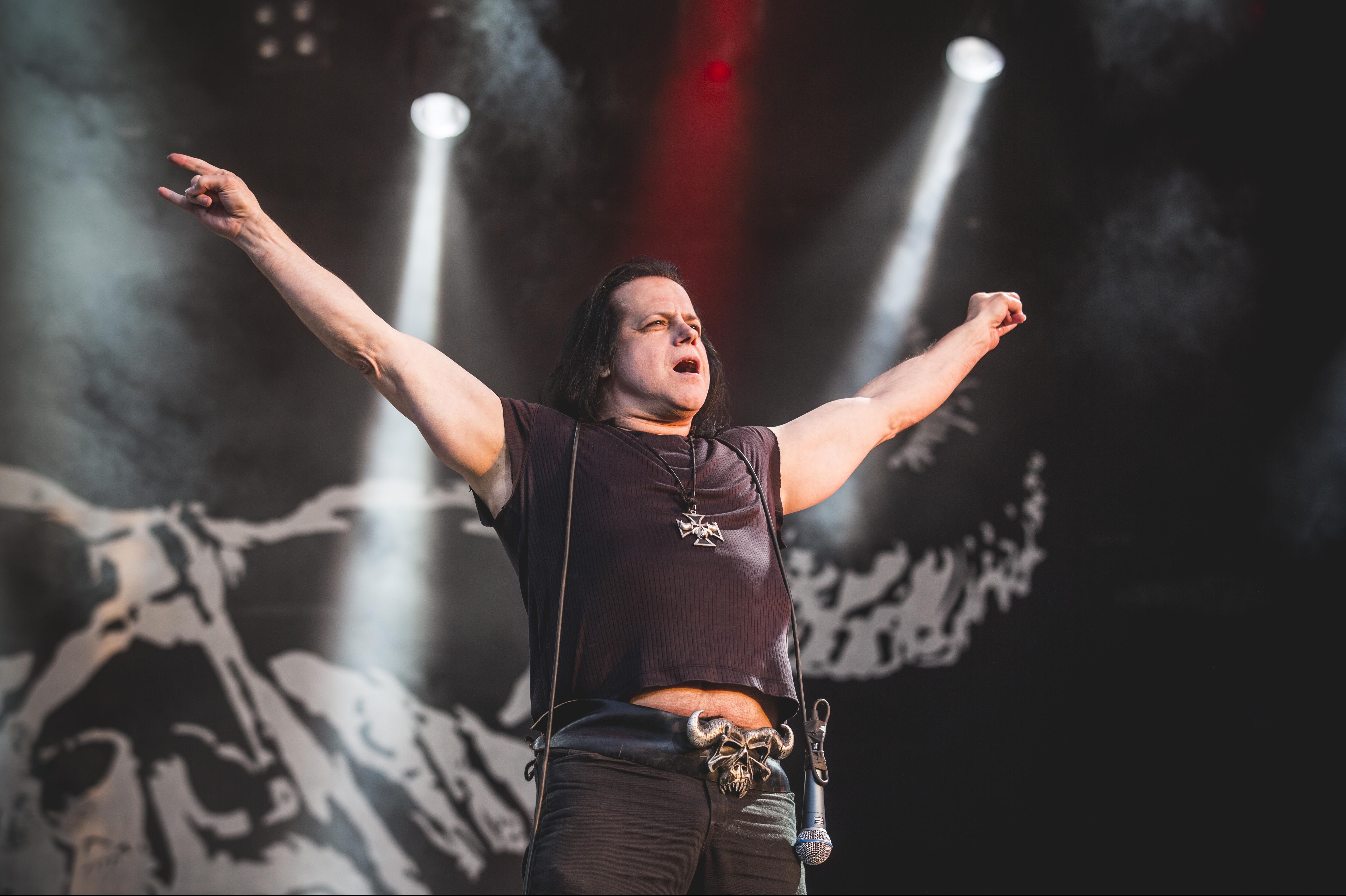Whether it’s conservative pundits claiming that Barack Obama killed it or curmudgeonly aging musicians saying they just don’t make ’em like they used to, the assertion that rock ‘n’ roll is dead is one that’s been getting regurgitated like clockwork every year for decades now. It’s an embarrassing argument, one that says more about the person making it and their knowledge of current bands than it does our actual musical landscape, and no matter how many times it gets repeated, it still remains categorically untrue.
In recent years, one of the groups that has been frequently held up as an example that rock is alive and well is the UK’s IDLES. Since their 2017 debut album Brutalism, the quintet has gained a large, international following — thanks in large part to their frenetic, infectious live shows. We can sit here and split hairs over what subset of the genre they’re best categorized as — fans of post-punk and krautrock will definitely appreciate their affinity for motorik beats, while punk purists will latch onto frontman Joe Talbot’s cathartic wails — but they are undeniably a rock band, and a damn good one at that.
With their first two records at least, a big part of their appeal was the way they called back to Thatcher-era punk’s progressive politics, preaching anti-racism and acceptance and speaking out against classism and toxic masculinity. On their breakthrough single “Mother,” Talbot screams, “My mother worked fifteen hours five days a week” before delivering a zinger to Britain’s conservative party: “The best way to scare a Tory is to read and get rich.” On “Danny Nedelko,” released on 2018’s Joy As An Act of Resistance in the wake of Brexit and Trump’s Muslim ban, he declares “My blood brother is an immigrant, a beautiful immigrant” before attempting to explain the root causes of the xenophobia and racism plaguing much of the Western world at the time: “Fear leads to panic, panic leads to pain/Pain leads to anger, anger leads to hate.” And despite punk’s association with white male anger — a commodity that has felt especially abundant since 2016 or so — IDLES do their best to push back against harmful stereotypes about what it is to be a man. (“The mask of masculinity is a mask that’s wearing me,” Talbot sings on “Samaritans.” “I’m a real boy, boy, and I cry/I like myself, and I want to try.”)
Those ideals are, of course, at the heart of all the best punk and punk-adjacent music, in everything from The Clash’s iconic Rock Against Racism performance in 1978 to the gender politics of riot grrl legends like Bikini Kill and Sleater-Kinney. And yet, as with other earnest, well-intentioned pop cultural phenomenons like Ted Lasso, the backlash was inevitable. The group’s third LP, last year’s Ultra Mono, prompted many to call out the band for becoming too preoccupied with their own wokeness; it failed to earn the same positive reviews and buzz as their first two efforts. There’s a heavy-handedness on Ultra Mono that veers on self-parody, and it features some lyrics that are downright cringe-y, no matter how good their intentions. (“You scrawling your aggro shit on the walls of the cubicle/Saying my race and class ain’t suitable,” Talbot snarls on “Guards.” “So I raise my pink fist and say Black is beautiful.”)
Fortunately, they appear to have learned from their mistakes, and their fourth album Crawler (out today via Partisan Records) represents both a return to form and a musical evolution for the group. (“There were lots of valuable lessons learned in the writing of Ultra Mono,” guitarist Mark Bowen recently told The Irish Times. “Crawler is kind of a rebirth. It rejects everything IDLES was. IDLES is dead … long live IDLES. That’s the purpose behind Crawler.”) While Ultra Mono focused too heavily on the macro, Crawler sees Talbot looking inward, examining his own history with addiction on “Meds” and recalling a harrowing car accident he got into while high on tracks like “MTT 420 RR” and “Car Crash.” Sonically, he and the rest of the band are broadening their horizons as well: high-energy songs like “The New Sensation” still fit squarely within their wheelhouse, but as a whole, Crawler is far more melodic and brooding than any other IDLES record. Lead single “The Beachland Ballroom” even sees them experimenting with soul influence.
And yet even when Talbot is doing his best Amy Winehouse impression, Crawler is an excellent reminder that anyone claiming rock is dead simply hasn’t been paying attention. Rock ‘n’ roll has always been about evolution; it’s why it’s a label that can be applied to everyone from Elvis and Chuck Berry to Bad Brains and Fugazi. With Crawler, IDLES have managed to find an important balance between embracing certain punk touchstones and pushing themselves out of their comfort zone. Isn’t that, after all, what the entire history of rock is about — borrowing from or paying homage to the old while finding a new twist to modernize it and push it forward?
Of course, IDLES are hardly the only band making interesting, relevant rock these days. The artists who fall under that vast umbrella are countless and extremely varied, everyone from Parquet Courts and PUP to Phoebe Bridgers and Japanese Breakfast. What those who try to argue that rock is dead actually mean is that the particular style of rock they happen to like isn’t as prevalent as it once was. But as IDLES remind us, rock has never been static. It may not look or sound like what you grew up listening to, but wouldn’t it be dull if it did? Change isn’t some sort of death knell; if anything, it’s a sign of vitality.
This article appeared in an InsideHook newsletter. Sign up for free to get more on travel, wellness, style, drinking, and culture.
























